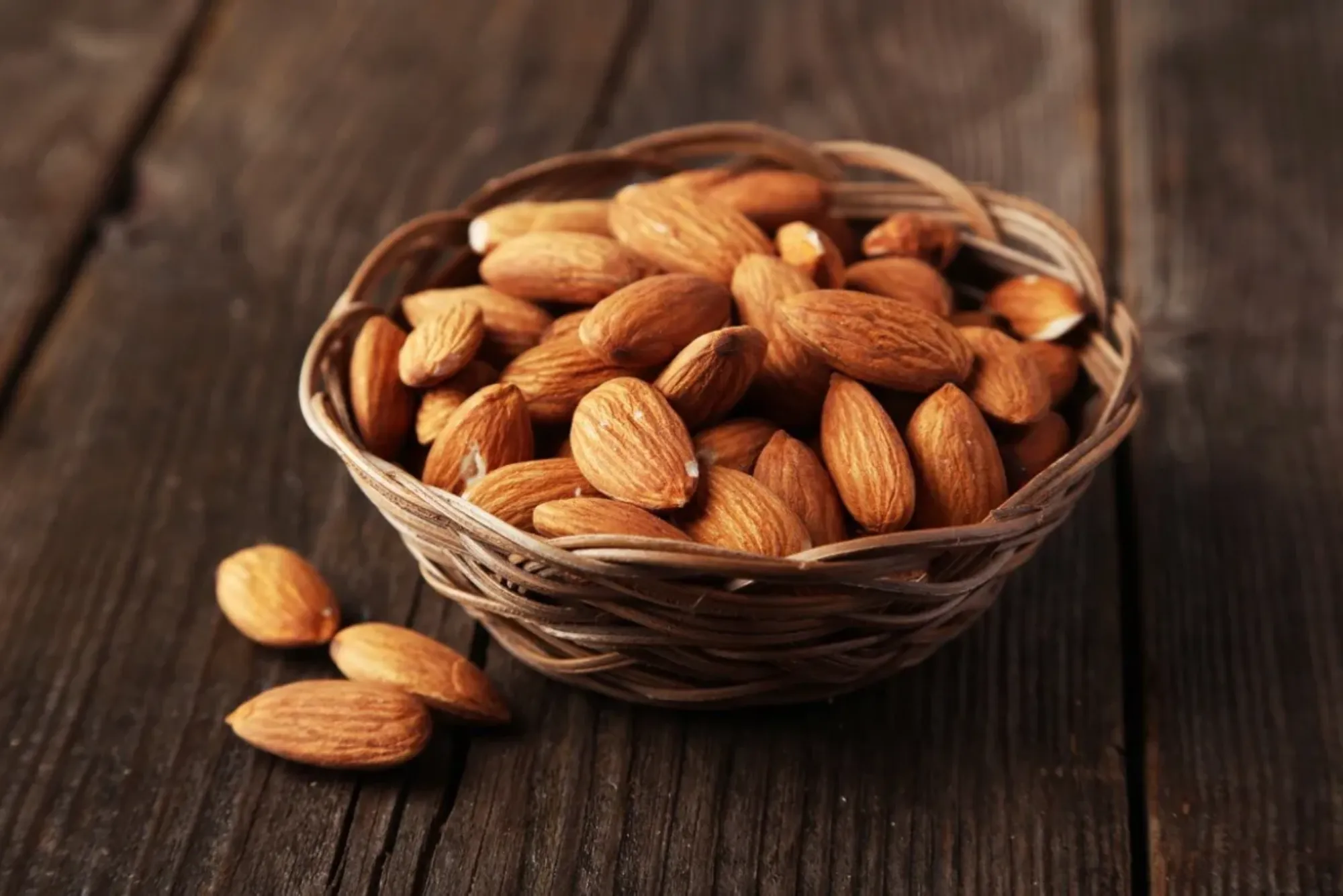What Defines a Healthy Snack?
Healthy snacks are typically small portions of food that provide essential nutrients like vitamins, minerals, fiber, and protein while avoiding excessive calories, sugars, and unhealthy fats. The key to a healthy snack is balance—combining complex carbohydrates with lean proteins and healthy fats. This combination helps stabilize blood sugar levels and maintain fullness, ultimately supporting overall health and well-being.
Nutrient Density
Nutrient density refers to the amount of essential nutrients (vitamins, minerals, fiber, and protein) per calorie in a food. Healthy snacks should be nutrient-dense, providing more vitamins and minerals relative to their calorie content. For instance, a small serving of almonds offers healthy fats, protein, and fiber, making it more nutritious than a processed snack bar high in sugar and low in essential nutrients.
Balanced Macronutrients
A well-rounded healthy snack typically includes a combination of macronutrients—carbohydrates, proteins, and fats. Each macronutrient serves a specific function in the body:
- Carbohydrates: They provide quick energy and are essential for brain function. Healthy carbohydrates can be found in fruits, whole grains, and vegetables.
- Proteins: These are crucial for building and repairing tissues and keeping you full longer. Healthy sources include lean meats, dairy, legumes, and nuts.
- Fats: Healthy fats support cell function, hormone production, and nutrient absorption. Sources include avocados, nuts, seeds, and olive oil.

For example, a snack combining apple slices (carbohydrates) with almond butter (protein and healthy fats) offers a balanced option that keeps energy levels stable.
Low in Added Sugars
Many commercially available snacks are high in added sugars, which can lead to spikes in blood sugar levels followed by crashes, leading to fatigue and cravings. Healthy snacks should minimize added sugars and instead rely on natural sugars found in fruits. For example, rather than a sugary granola bar, opt for a homemade trail mix with nuts, seeds, and dried fruit, which provides natural sweetness and nutrients.
Minimal Processing
Processed foods often contain unhealthy additives, preservatives, and artificial ingredients that can detract from their nutritional value. Healthy snacks should be as close to their natural state as possible. Whole foods, like fresh fruits and vegetables, nuts, and whole grains, are excellent options. For instance, snacking on carrot sticks or celery with hummus is a simple, unprocessed way to enjoy a nutritious snack.
Portion Control
Even healthy snacks can contribute to weight gain if consumed in excessive quantities. It’s important to practice portion control by being mindful of serving sizes. Measuring out snacks in advance or using smaller containers can help you avoid overeating. For example, a handful of nuts (about 1 oz or 28 grams) is a great portion, providing healthy fats and protein without too many calories.
Fiber Content
Fiber is a crucial component of a healthy diet that aids digestion, promotes satiety, and helps regulate blood sugar levels. Healthy snacks should be high in fiber, which can be found in whole grains, fruits, vegetables, legumes, and nuts. For instance, a snack of whole-grain crackers with hummus or an apple with peanut butter provides not only fiber but also important nutrients.
Hydration
While not a food per se, hydration is an important consideration when defining a healthy snack. Sometimes, feelings of hunger can actually be signals of dehydration. Incorporating water-rich foods like fruits (watermelon, oranges) and vegetables (cucumbers, bell peppers) into your snacking routine can help keep you hydrated while also providing essential nutrients.
By understanding these key elements that define a healthy snack, you can make informed choices that support your overall health and wellness. Healthy snacking not only helps keep your energy levels up throughout the day but also contributes to your nutritional needs and aids in maintaining a balanced diet.
Benefits of Eating Healthy Snacks
Incorporating healthy snacks into your daily routine can offer numerous benefits, including:
Sustained Energy Levels
Nutrient-dense snacks help maintain consistent energy throughout the day. This can prevent the fatigue often associated with blood sugar crashes caused by sugary snacks.
Improved Focus
Healthy foods like nuts, seeds, and fruits can enhance brain function and concentration. The right nutrients support cognitive function and mental clarity, which can be especially beneficial during long work or study sessions.
Weight Management
Eating healthy snacks can help manage your weight effectively. By curbing hunger with nutrient-rich foods, you can prevent overeating during meals and make healthier choices overall.
Examples of Healthy Snacks
Here are some nutrient-packed, satisfying snacks that you can easily incorporate into your day:
Fruits and Nut Butter
Combining fresh fruits such as apples or bananas with almond or peanut butter creates a perfect mix of fiber and healthy fats. The natural sugars in fruit provide an energy boost, while the nut butter keeps you fuller for longer, making this a balanced and tasty snack.
Greek Yogurt and Berries
Greek yogurt is rich in protein and probiotics, which are beneficial for digestion. Pair it with antioxidant-rich berries for added fiber and a hint of sweetness. This snack is not only delicious but also offers a creamy texture that can satisfy cravings for something indulgent.
Veggie Sticks and Hummus
Crunchy carrot, cucumber, and bell pepper sticks dipped in hummus make for a refreshing snack. Hummus, made from chickpeas, provides plant-based protein and healthy fats, while the veggies add important vitamins and minerals.
Mixed Nuts
A small handful of mixed nuts like almonds, walnuts, and pistachios can provide a significant source of protein, healthy fats, and essential minerals like magnesium. Just be mindful of portion sizes, as nuts are calorie-dense; a handful (about 1 oz) is typically recommended.
Hard-Boiled Eggs
Eggs are an excellent source of high-quality protein, vitamins, and minerals. A hard-boiled egg is a convenient, portable snack that keeps you satisfied between meals, making it ideal for on-the-go nutrition.
Snacks for Special Diets
Whether you’re following a specific diet plan or have food restrictions, there are healthy snack options for everyone:
Gluten-Free Snacks
For those with gluten sensitivity, options like rice cakes topped with avocado, fruit smoothies, or gluten-free granola bars are great choices. These snacks provide a satisfying crunch or creamy texture without compromising dietary needs.
Vegan-Friendly Snacks
Vegan options abound, including roasted chickpeas, energy balls made from oats and dates, or a simple fruit salad. These snacks are not only delicious but also rich in nutrients and plant-based protein.
Low-Carb Snacks
For individuals on a low-carb diet, snacks like cheese sticks, olives, and cucumber slices with guacamole are excellent choices. These options are low in carbohydrates but high in flavor and satisfaction.

Tips for Smart Snacking
To make the most of your snack choices, keep these tips in mind:
Plan Ahead
Pre-portion your snacks to avoid overeating. Preparing snacks in advance can help you make healthier choices when hunger strikes.
Opt for Whole Foods
Choose minimally processed foods like fruits, vegetables, nuts, and seeds. Whole foods are packed with nutrients and provide the best health benefits.
Stay Hydrated
Sometimes thirst is mistaken for hunger. Drink water before reaching for a snack to ensure you’re not just dehydrated. Staying hydrated can also help curb unnecessary snacking.
Healthy snacks are a vital part of a balanced diet, offering numerous benefits for energy, focus, and weight management. By choosing nutrient-rich, portion-controlled snacks, you can satisfy cravings without compromising your health goals. Enjoy experimenting with these snack ideas to keep your body fueled and nourished throughout the day! Remember, the key to healthy snacking is balance and variety, so explore different options and find what works best for you.











